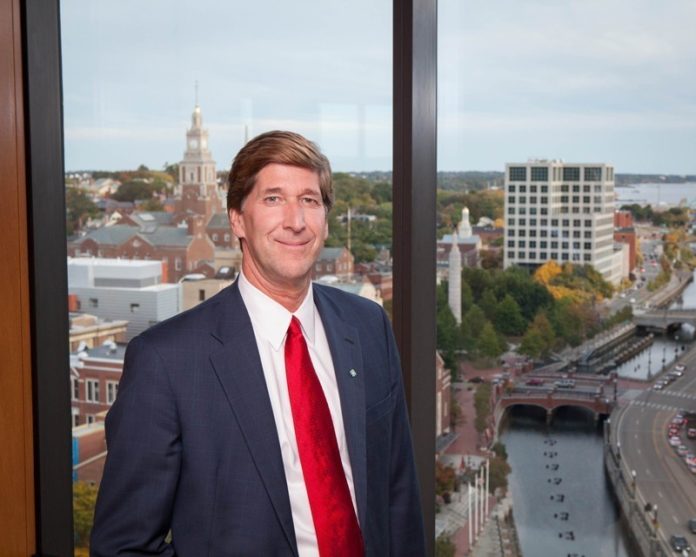
Bruce Van Saun is chairman and CEO of Citizens Financial Group Inc., the state’s largest bank with $140.1 billion in total assets.
Despite widespread low earnings realized among banks nationwide through this year’s first quarter, Citizens Bank, based in Providence, last week reported first-quarter profit grew 6.7 percent to $223 million, or 41 cents per diluted share, last week compared with the same period last year.
Van Saun talks with Providence Business News about the bank’s first-quarter earnings, its exposure to the struggling oil and gas markets and the Rhode Island economy.
(Reporter’s note: This interview has been edited and shortened)
PBN: What were some of the highlights and challenges from Citizens first-quarter earnings?
VAN SAUN: I think the real highlight from our standpoint is that if you look at those year-over-year numbers we continue to have a positive operating leverage.
Revenue growth was about 4 percent and our expense growth was about 1 percent, so there’s about 3 percent of operating leverage, which is pretty hard to come by … and helps our profitability.
Everyone is having trouble growing their fees these days. There was a lot of volatility in the markets in January and February. We’ve got to do better at growing our fee revenues, and I think we’re on the right track. … Hopefully, you’ll start to see a faster rate of growth. Frankly it was a little disappointing, but we were not alone.
PBN: Some of the biggest banks struggled this quarter because of the lull in gas and oil markets. What sort exposure is Citizens dealing with?
VAN SAUN: That’s the good news. Our energy portfolio is relatively modest at $1.8 billion and that’s under 2 percent of our total outstanding loans … but we’re monitoring it carefully and we’ll see how it plays out.
PBN: How goes your hiring strategy to help bolster mortgage sales and wealth management?
VAN SAUN: It’s a little more slow-going than we’d like, but there’s some contributing factors that we’ve attacked and are now under control and in the review mirror. The principal issue we had was that we were going through a complete replacement of our mortgage system and some mortgage industry changes that changed the way disclosures worked and how mortgages were originated. Now, our pipeline for Q2 (second quarter) is starting to trend in the right way … it’s a bit of a work in process and is about six months behind where I’d like it to be. I think we have good momentum in growing wealth advisers and I expect that to continue. … We think there’s real opportunity there and I’d say you’re going to see a little more momentum.
PBN: What can you say about the Rhode Island economy and the direction the state is headed?
VAN SAUN: There is a bit of progress in the economy in Rhode Island. The unemployment numbers are trending positively and we recently announced our big new campus making sure folks know we’re committed to being headquartered in the state, which is a big job commitment in terms of the future. I do think the governor is certainly pro-business and trying to work on policies that attract new business into the state and more jobs, which is a mission she knows is important. Business folks are talking with other business leaders about ways we can be helpful and let our networks know that Rhode Island is a good place to do business.
PBN: How has it compared regionally?
VAN SAUN: I think it’s interesting how Massachusetts has done it. In the region they have the most momentum [and] for Massachusetts they’ve done it with their education system in an era when you need knowledge workers and a well-trained workforce. They’re certainly leveraging some natural advantages and I think Rhode Island has many of those same things. But on some level the education in particular has helped Massachusetts move a little bit ahead.












